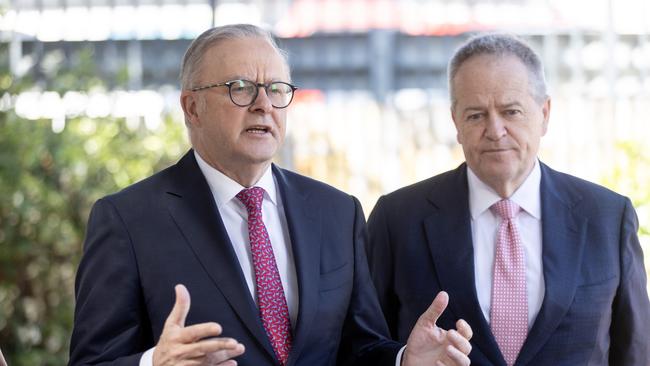Margins are under pressure. But there is a boom area – supplying services to NDIS, where margins are wonderful. I am not equipped to sort out the NDIS morass, but it has hit the radar in an enterprise survey by Cameron Research.
Today’s commentary will mainly be devoted to the experiences of real businesses rather than statistics.
State and federal governments are injecting vast sums into communities which creates consumer demand that to date has insulated the economy, but in the process has kept interest rates high.
The softness in demand reported by Flight Centre is a clear sign of this development, but there are also signs that pre-Christmas sales and Christmas itself will see strong consumer spending.
Cameron Research bases its material not on statistics, but on talking to hundreds of small and medium-sized enterprises around Australia.
Ross Cameron says that right across his SME panel, conditions have deteriorated, except those exposed to the NDIS, some of which seem to be earning 250 cents in the dollar.

Over the spectrum of business “some are doing moderately well … some are doing OK … some are doing poorly – but few are knocking it out of the park.
“The past 12 months has been a period where business owners have found it difficult to push through price rises – so their margins take a hit. Importantly, though, it’s not getting any worse … but it is not getting better,” Cameron says.
Here are extracts from what businesses have told him:
• “We’ve got a portfolio of businesses, so we’ve got some businesses that have never been stronger, powering ahead, getting the payback from investments we made three, five, seven years ago – people, technology, processes, systems.
“And then we’ve got other businesses that are down 40 per cent and struggling to keep the doors open. They’re in manufacturing, retailing. And it’s the same common themes – it’s the government taxes in the system, the WorkCover costs, land tax, electricity costs (even though we’ve put in solar at a cost of $300,000), labour and superannuation are all going up.”
• “People aren’t spending as much, so you can’t put the prices up. It’s really about looking at the items that sell a lot and how can we make them more profitable.”
• “Any growth that we have as a business is gobbled up in wages and cost of goods and just everything in the back-end going up with inflation.”
• “You would think that the state government has no money but there are so many projects coming out that are state government-funded, where the money was put into the budget two to three years ago, so there’s a lot of work still going to be in construction … and reactive maintenance – if your hot water goes, you have to get it fixed.”
• “In the elective things – if you want another couple of power points or if you’re going to do an extension of a house – that’s where people are becoming very price-conscious and getting lots of prices … So I think it’s going to be tight, but if you’re a proactive business, you will find something that’s moving.”
• “The ATO is stepping up with compliance programs, so we’re getting a lot of push-back from them. They’ve become a lot tougher.”
• “A lot more companies we work with are in-housing services. We’ve got exposure into the advertising market and a lot of brands put their money into earned media and social media and not into buying paid media. There’s always 10 times the inventory than there is advertiser demand, so it’s a very quick race to the bottom on price.”
• “In the property area, we’ve come off our most profitable year to date, which is fantastic. It’s always a little hard to tell … Currently, we’ve definitely noticed a decrease in the number of enquiries that have come into the door. However, it’s the first time I can think of since Covid-19 where we’re actually being called by tradespeople to see if we’ve got work coming up. Both trades and suppliers are doing that.”
Cameron says small and medium-sized enterprises are making four key changes: increasing the use of technology, cutting costs, tweaking staffing and increasing advertising/promotion.
Correction
A correction to my recent column “Rio Tinto’s hidden lithium message to Canberra’’. Liontown Resources report that it entered into an arrangement with government bodies to raise $230m; the money also became available from the LG group on better terms. Accordingly, the government funding was not consummated.





The cauldron of business activity statistics portrays a world where business costs continue to rise, and it is difficult to pass them on.